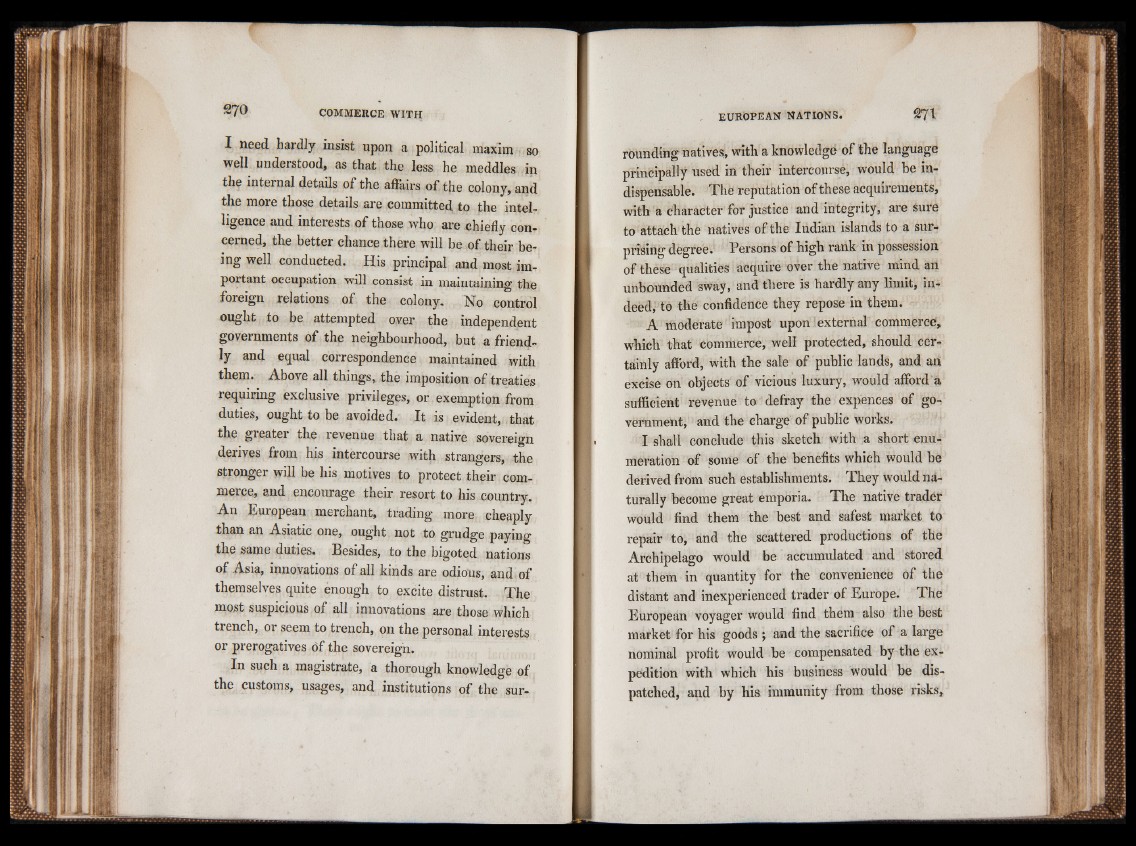
I need hardly insist upon a political maxim so
well understood, as that the less he meddles in
the internal details of the affairs of the colony, and
the more those details are committed to the intelligence
and interests of those who are chiefly concerned,
the better chance there will be of their being
well conducted. His principal and most important
occupation will consist in maintaining the
foreign relations of the colony. No control
ought to be attempted over the independent
governments of the neighbourhood, but a friendly
and equal correspondence maintained with
them. Above all things, the imposition of treaties
requiring exclusive privileges, or exemption from
duties, ought to be avoided. It is evident, that
the greater the revenue that a native sovereign
derives from his intercourse with strangers, the
stronger will be his motives to protect their commerce,
and encourage their resort to his country.
An European merchant, trading more cheaply
than an Asiatic one, ought not to grudge paying
the same duties. Besides, to the bigoted nations
of Asia, innovations of all kinds are odious, and : of
themselves quite enough to excite distrust. The
most suspicious of all innovations are those which
trench, or seem to trench, on the personal interests
or prerogatives of the sovereign.
In such a magistrate, a thorough knowledge of
the customs, usages, and institutions of the surrounding
natives, with a knowledge of the language
principally used in their intercourse, would be indispensable.
The reputation of these acquirements,
with a character for justice and integrity, are sure
to attach the natives of the Indian islands to a surprising
degree. Persons of high rank in possession
of these qualities acquire over the native mind an
unbounded sway, and there is hardly any limit, indeed,
to the confidence they repose in them.
A moderate impost upon’external commerce,
which that commerce, well protected, should certainly
afford, with the sale of public lands, and an
excise on objects of vicious luxury, would afford a
sufficient revenue to defray the expences of government,
and the charge of public works.
I shall conclude this sketch with a short enumeration
of some of the benefits which would be
derived from such establishments. They would naturally
become great emporia. The native trader
would find them the best and safest market to
repair to, and the scattered productions of the
Archipelago would be accumulated and stored
at them in quantity for the convenience of the
distant and inexperienced trader of Europe. The
European voyager would find them also the best
market for his goods; and the sacrifice of a large
nominal profit would be compensated by the expedition
with which his business would be dispatched,
and by his immunity from those risks*